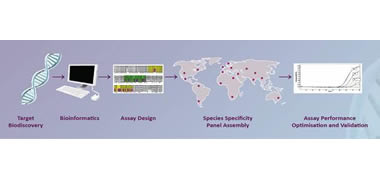-
Courses

Courses
Choosing a course is one of the most important decisions you'll ever make! View our courses and see what our students and lecturers have to say about the courses you are interested in at the links below.
-
University Life

University Life
Each year more than 4,000 choose University of Galway as their University of choice. Find out what life at University of Galway is all about here.
-
About University of Galway

About University of Galway
Since 1845, University of Galway has been sharing the highest quality teaching and research with Ireland and the world. Find out what makes our University so special – from our distinguished history to the latest news and campus developments.
-
Colleges & Schools

Colleges & Schools
University of Galway has earned international recognition as a research-led university with a commitment to top quality teaching across a range of key areas of expertise.
-
Research & Innovation

Research & Innovation
University of Galway’s vibrant research community take on some of the most pressing challenges of our times.
-
Business & Industry

Guiding Breakthrough Research at University of Galway
We explore and facilitate commercial opportunities for the research community at University of Galway, as well as facilitating industry partnership.
-
Alumni & Friends

Alumni & Friends
There are 128,000 University of Galway alumni worldwide. Stay connected to your alumni community! Join our social networks and update your details online.
-
Community Engagement

Community Engagement
At University of Galway, we believe that the best learning takes place when you apply what you learn in a real world context. That's why many of our courses include work placements or community projects.
June 2012 New DNA Test to Help in Global Effort to Control TB
New DNA Test to Help in Global Effort to Control TB
Friday, 29 June 2012

A new diagnostic DNA test has been developed by a team at the National University of Ireland Galway to help in the global effort to control tuberculosis (TB). The rapid laboratory test allows for the identification of the exact bacteria causing a patient’s TB which will give valuable information for their treatment.
According to World Health Organisation data, tuberculosis (TB) is second only to HIV/AIDS as the greatest killer worldwide due to a single infectious agent. In 2010, 8.8 million people fell ill with TB and 1.4 million died from TB, with over 95% of cases and deaths in developing countries.
In humans, TB is caused by a group of eight bacteria collectively known as the Mycobacterium tuberculosis complex (MTC). National University of Ireland Galway’s Molecular Diagnostics Research Group has developed and validated a new assay or laboratory test called SeekTB to identify all members of the MTC.
Dr Thomas Barry at the University, along with his colleagues Dr Justin O’Grady and Dr Kate Reddington, realised there was a need to rapidly and accurately detect and identify each member of the MTC for better treatment of TB. “The optimal patient treatment can be different, depending which of the eight bacteria are causing the TB, as some of these bacteria are naturally resistant to a commonly used anti-TB drugs”, explains Dr Barry.
The new test, called SeekTB, could also prove useful to centralised clinical reference labs for the purposes of tracking and conducting epidemiological studies on the various mycobacterium species comprising the complex. “Identifying the specific member of the MTC is currently not routinely performed in testing laboratories and therefore it is unknown what the true impact each member of the MTC has on the global TB epidemic,” says Dr Barry, who lectures in Microbiology at National University of Ireland Galway.
The advance in what is a global battle against TB, is the result of international co-operation. The novel technology was initially validated by testing a large number of previously isolated MTC bacteria provided by Professor Dick van Soolingen, Bilthoven in the Netherlands and Dr Stefan Niemann, Borstel in Germany.
Subsequently, through collaborations with Professor Alimuddin Zumla and Dr Matthew Bates at University College London, SeekTB was used to successfully analyse patient samples from Lusaka in Zambia to demonstrate the technology’s suitability. The results of this analysis demonstrated the rapidity, the test only takes 1.5-3 hours to perform, validity and robustness of SeekTB.
In its current format, SeekTB is likely to be predominantly used in central testing laboratories, in Africa for example, on culture positive TB patient samples to guide appropriate treatment and control measures.
“Ideally, in the future, SeekTB could be used directly on patient samples with the test configured onto a handheld machine for use at point-of-care in resource poor settings. This could be a huge benefit to medical care provision in remote areas, however, it will likely take years of research and development to achieve such a goal,” concluded Dr Barry who acknowledged National University of Ireland Galway and the Thomas Crawford Hayes award for funding this work.
The research has recently been published in the Journal of Clinical Microbiology and PLoS ONE.
-ends-
Keywords: Press.
Author: Marketing and Communications Office, NUI Galway
« Back
Related news
23 February 2026
University of Galway announces two new scholarships with Davy
20 February 2026
Scientists piecing together the puzzle of nerve repair
19 February 2026
EPA-funded projects to address urgent climate and environmental challenges
18 February 2026
Experts launch Hedgehog Conservation Ireland to monitor and protect populations
18 February 2026
Student awarded Novo Nordisk Ireland scholarship for research in diabetes















